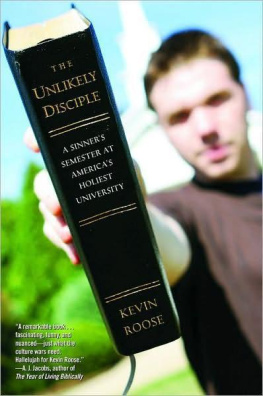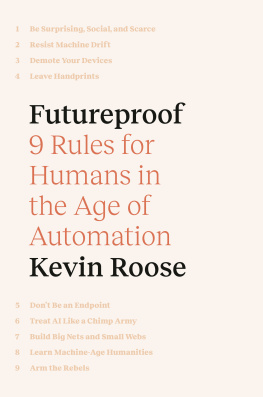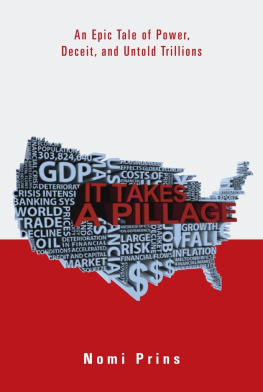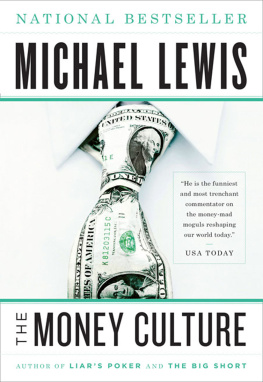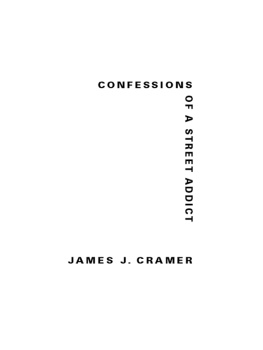The eight young financial workers profiled in this book allowed me into their lives to an astounding (and, frankly, ill-advised) degree over the course of the more than three years I spent interviewing them. Despite Wall Streets tradition of tight-lipped secrecy, they told me everything. They spoke candidly about their struggles and shortcomings, made me privy to confidential information about their work, and, in some cases, turned over their private diaries, photographs, and e-mails.
In doing so, they took a massive risk. All of them violated rules set by their employers that forbid them from speaking to the media without permission, and most breached boundaries of personal comfort as well. If they had been caught talking to me, they could easily have been fireda possibility that escaped none of them.
In exchange for their openness, these young financiers made only one request: that I keep them anonymous. As a result, most names in this book have been changed, many personal details have been altered or obscured, and a few events have been reordered chronologically or given minor tweaks to make them less recognizable to the people involved. In some cases, the description of a persons job function has been changed to that of a related job, and the names of some financial firms have been replaced with the names of similar firms. (Ive left in place the names of prominent executives, as well as people who allowed me to use their real names.)
With these necessary exceptions, the stories in this book are true.
IF YOU WANT to succeed as a young banker on Wall Street, there are some fairly strict preconditions. You have to be pleasant, polite, and attentive to detail. You have to be able to work three consecutive twenty-hour days without having a nervous breakdown or falling asleep on your keyboard. You have to know how to calculate the net present value of future cash flows, how to make small talk about the Yankees, and, ideally, how to write a coherent memo to your boss after your third Jger Bomb.
But most important, you have to be handy with an Excel spreadsheet. Not just handy, actually. You must be an Excel wizarda grandmaster of the XLS file format. Which was why, on a weekday afternoon in 2010, I found myself sitting in a cramped conference room on Broad Street while a statuesque Russian woman named Valentina pitted me against thirty brand-new Wall Street recruits in a spreadsheet-formatting competition.
On your mark, get setgo! she cried.
All at once, the room filled with the machine-gun cli-cli-cli-click sound of fingers flying over laptop keys. I looked down at my unformatted spreadsheetit was a mess. Rows 14 and 18 should have been bolded but werent. There was an empty row between row 11 and row 12, and the years in row 5 were formatted to the first decimal place, so instead of saying 2007, 2008, 2009, and so on, they said 2007.0, 2008.0, and 2009.0. In all, there were about fifteen errors standing between me and the kind of pristine, organized Excel spreadsheet that would make a senior banker swoon. The all-time record for total beautification was thirty-five seconds, set by a freakish junior analyst from an investment bank called Moelis and Company. Id be lucky if I was done in ten minutes.
I looked up at the other students in the rooma crew of eager young finance cadets who had been sent to a five-day boot camp, run by a company called Training the Street, to learn elementary accounting, basic financial analysis, and other skills theyd need at their new jobs on Wall Street. Most of them were in their early twenties, the ink still drying on their college diplomas. Some were lifelong bankers-in-training. Others were liberal arts majors who didnt know bonds from bananas. And in a matter of days, all of them would be let loose on the markets. Armed with Bloomberg terminals and can-do attitudes, theyd get to work selling stocks, building models for billion-dollar mergers, and giving business advice to corporate executives old enough to be their parents. They were just entry-level analyststhe lowest of the low in Wall Streets pecking orderbut the fact that they had managed to get hired by some of the worlds most powerful investment firms meant that they were on the rise. Soon, they would officially become card-carrying financiers, and they would be invited to take part in a giant, globe-spanning moneymaking operation that controls the fates of companies, governments, and millions of ordinary people around the world.
I, too, was a twentysomething living in New York, but that was about where the similarities with my fellow Excel grunts ended. I studied English in college, took a grand total of zero business or economics courses, and paid no mind to the corporate recruiting circus that came to campus every year. Neither my upbringing in small-town Ohio nor my schooling had helped me understand or sympathize with what went on inside Wall Street banks. And during the economic collapse of 2008, every story I read about the financial sectors implosion seemed to be describing a cartoonish fictional universeone that seemed as distant from my everyday life as reading about Scientology or the mob.
But when I moved to New York after college, I started getting curious. The economy was still in shambles, and the worlds anger toward Wall Street banks was still burning blue-hot. Politicians and pundits fulminated on the greed of bailed-out bankers, and many called for them to be prosecuted and jailed. HBO talk show host Bill Maher quipped about executing Wall Street higher-ups; one online clothing vendor sold I Hate Investment Banking T-shirts for $18.99 apiece; and a new arcade game called Whack-a-Banker was introduced in the United Kingdom, in which players used mallets to take their aggression out on pinstriped financiers. (The game became so popular in its first location, the BBC reported, that the worn-out mallets had to be replaced.)
Watching Wall Street incur the worlds wrath, I often found myself wondering how the financial crisis was affecting young bankers and tradersthe people my age who started their jobs in 2009 and 2010. They had nothing to do with the crash, of course. They had been in college while banks like Bear Stearns were loading up their books with mortgage-backed securities and increasing their leverage to dangerous levels. Still, as a result of the work theyd chosen, they were experiencing the financial industrys pariah status right along with their elders.
Being young on Wall Street has always been a bizarre combination of glamour and masochism. On one hand, youre a budding Master of the Universean apprentice at the feet of some of the worlds most talented moneymakers. You earn significantly more than your peers in other industries, get to witness billion-dollar deals unfold, and have a prestigious launching pad for the rest of your career. On the other hand, the work itself is often repetitive and boring, and the long hours and hellish lifestyle associated with the job can wear down even the brightest and most ambitious recruits. After the crisis, Wall Street recruits also had to cope with their industrys new stigmatization. Many of the young people who came to Wall Street expecting champagne and caviar got dirty looks and ignominy instead.


